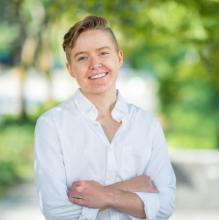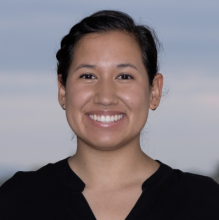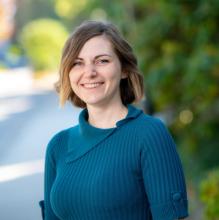The outcome of the study will better inform hospitals whether greater and/or varied communication strategies should be pursued when recently approved chemotherapies are used in order to increase the health literacy and, therefore, health outcomes of their patients.
Research Description
Health literacy is an individual’s ability to access, understand, and utilize information in order to create an informed decision regarding their health. Poor health status has regularly been associated with low health literacy. Additionally, a nationwide study has indicated that approximately 60% of Canadians are considered to have low health literacy skills. A major contributing factor to low health literacy includes the increasing complexity of the treatment options. With cancer research being one of the most active fields of study, it is inevitably expanding in complexity. We hypothesize that treatment with complex chemotherapies will limit the quality of life benefits for patients, if additional communication strategies are not utilized for those patients with low health literacy. We propose to qualitatively and quantitatively understand patients’ experiences, particularly those involving recently approved chemotherapies, and their impact on patients’ perceptions and understanding of their treatment. Overall, this patient-oriented research strives to provide understanding in the following areas: 1) identify if there is a health literacy concern in cancer patients receiving recently approved chemotherapies, 2) understand how the patient feels about the quantity and quality of information provided, 3) ascertain how feedback from 1&2 could have impacted their quality of life, and 4) identify patients’ suggestions for improving treatment experiences, assess their potential feasibility, and implement those which are feasible. The outcome of the study will better inform hospitals whether greater and/or varied communication strategies should be pursued when recently approved chemotherapies are used in order to increase the health literacy and, therefore, health outcomes of their patients.
What does being a Public Scholar mean to you?
Being a public scholar means that I will be a part of a network of graduate students having a rich diversity of backgrounds and interests. This opportunity will allow me to not only coordinate with scholars in other fields but also with members of the public. In turn, this leads to the desireable outcome of helping to promote research while also benefitting the public good. This community of inclusivity will not only allow me to grow as a researcher but also to advocate for issues and technologies that would provide societal benefits.
In what ways do you think the PhD experience can be re-imagined with the Public Scholars Initiative?
The public scholar initiative has truly re-imagined my PhD experience and I am not surprised to hear that it has done so for others as well. The foundation of my PhD degree is grounded in basic science and the majority of my project encompasses laboratory work (microscopes, fluidics devices, etc.). The public scholar initiative has given me and others the opportunity to take a step back from our narrow fields of research and consider the implications of our research more holistically. By doing so we, as researchers, can better understand communities’ needs and begin to integrate our research into those areas that were not previously afforded such consideration. This opportunity, therefore, has allowed me to connect my passion of communication and community engagement into my PhD program.
How do you envision connecting your PhD work with broader career possibilities?
I envision connecting my PhD work to broader career possibilities by applying the skills I have gained through the public scholar initiative. While most of my PhD skills encompass basic science techniques and analytics, PSI has given me the opportunity to develop skills in (1) community outreach methods, (2) qualitative research design and data analysis, (3) translational opportunities – such as translating science concepts to broad audiences, and (4) community focused grants and ethics applications writing. Upon graduating, I plan to leverage these skills and apply them to a career that combines both health science and knowledge translation.
How does your research engage with the larger community and social partners?
In our research, we hope to better understand cancer patients’ experiences, particularly those receiving newly developed therapies, and their impact on patients’ perceptions and their understanding of those treatments. Through both discussions and surveys, we will identify if there is a gap in patients’ abilities to access, understand, and utilize information in order to create an informed decision regarding their health. In order to look at this question, we need to engage multiple community and social partners such as patients, researchers, and medical professionals.
Why did you decide to pursue a graduate degree?
Originally, I decided to pursue personalized medicine when my friend’s father passed away due to complications with his cancer treatment. Consequently, I began to research cancer therapies and learned of the negative side effects that were caused by the therapies themselves. I began to investigate strategies that are used to negate these negative side effects and, in the process, discovered nanomedicine. This high school experience led me to pursue an undergraduate degree in health sciences while undertaking nanomedicine research in chemical engineering laboratories. After having had the opportunity to be involved in research that was intended to decrease the negative side effects of chemotherapies while increasing their effectiveness against cancer, I knew that I wanted to pursue a graduate degree in nanomedicine.
Why did you choose to come to British Columbia and study at UBC?
I chose UBC for several reasons, including its reputation as a research institute and diverse program selection. UBC is a globally recognized university with a high degree of renowned researchers. Having the ability to pursue a PhD with the support of my supervisors, Drs. Marcel Bally and Donald Yapp, has allowed me to both engage with experts in my field and pursue opportunities that I would not have been able to do elsewhere. This has led to a collaborative, multi-institutional environment where I am able to draw on expertise from Simon Fraser University, the BC Cancer Agency, as well as the University of Victoria. In addition to the collaborative environment, UBC has recently developed a program in interdisciplinary oncology within the faculty of medicine. I felt that having a program that provided an integrated approach within an interdisciplinary research environment in the area of oncology would allow me to pursue my research passions.
Being a public scholar means that I will be a part of a network of graduate students having a rich diversity of backgrounds and interests. This opportunity will allow me to not only coordinate with scholars in other fields but also with members of the public.




